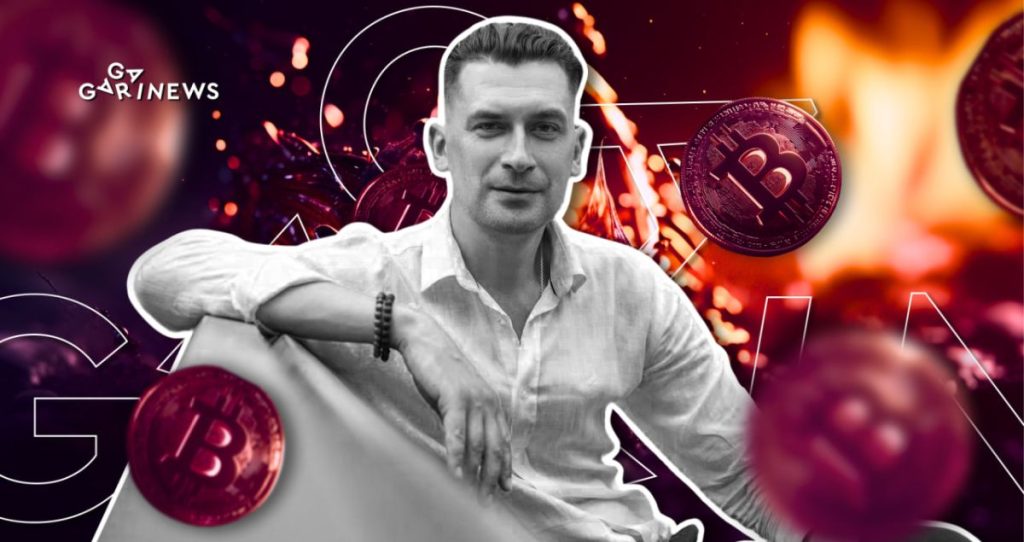Real Estate for Cryptocurrency: Lawyers Express Doubt

Cryptocurrency and real estate are part of two separate asset classes, each possessing distinct investment characteristics. However, there are instances where we may wish to utilize cryptocurrency in the original manner envisioned by Satoshi Nakamoto — as a currency rather than merely a financial instrument.
Purchasing a house or apartment can present various challenges that may be difficult to navigate without the guidance of an experienced lawyer. To gain insights from someone with extensive legal expertise and a profound understanding of the crypto world, we consulted Danylo Kravtsov, a Licensed Attorney, PhD in law.
GN: Hi, Danylo! We have some questions again. Can you help, please?
Danylo Kravtsov: Of course! Although I suspect that some of my answers may not be to your liking.
GN: Let's give it a try.
Is it possible to buy real estate with cryptocurrency? We know that such a precedent has already been set in Ukraine. Mark Ginsburg sold his Kyiv apartment to Michael Arrington, a US citizen, for 212.5 ETH, which at the time was worth $60,000. The buying/selling process had legal support, and the contract's legality was officially confirmed by Ukraine's Electronic Governance Agency. Do you know the details of this transaction and what share of this apartment was sold?
Danylo Kravtsov: The transaction you're referring to is certainly an interesting legal precedent. However, I would advise you to view it more as a marketing activity by the company that participated in it, a sort of hype. Of course, it's worth evaluating the knowledge, skills, and creative approach of the participants in this transaction.
But to me, this story looks more like a well-directed and staged legal play where the actors played their roles to the fullest. The main thing is that they were able to achieve the desired result!
The lack of widespread adoption of the tested scheme to this day is the best confirmation of the artificiality of the mentioned transaction. Despite the growing popularity and use of cryptocurrencies, traditional payment methods are still the preferred option for both real estate buyers and sellers.
GN: From a legal perspective, why does this agreement look like an interesting show?
Danylo Kravtsov: Let me explain what's going on here.
This legal agreement was made in 2017 when Ukraine's cryptocurrency industry was still in its early stages. At that time, there were few experts in the market, and even fewer people willing to test the government's approach to virtual assets.
The participants in the agreement were both non-residents of Ukraine: the seller was a US citizen and a physical person, while the buyer was a legal entity registered in the US. The subject of the agreement was an apartment in Kyiv, which the seller valued at $60,000. Both parties were represented by power of attorney.
The platform that enabled this legal transaction was an American company called Propy, which provides automation services for real estate transactions using blockchain technology. Interestingly, the buyer is listed as an advisor on the company's official website.
The transfer of the real estate object was completed via a smart contract on the Propy platform. The parties concluded the contract, and the buyer sent the equivalent value of the apartment in ETH to the smart contract address.
The arrival of the cryptocurrency was recorded on the Ethereum blockchain. After this, Ukrainian lawyers followed traditional procedures for preparing and registering the agreement. They ordered a property assessment, notarization, and registration of data in the State Register of Real Rights to Immovable Property. The parties chose a barter contract to settle the transaction, whereby the apartment was exchanged for cryptocurrency.
It's worth noting that in 2017, Ukraine had not yet passed a law regulating the legal status of virtual assets. As a result, the only option currently available is to apply laws that regulate similar civil relationships (an analogy of the law). If it is impossible to use the analogy of the law, these relationships should be regulated according to the general principles of civil law (an analogy of the right). This is the approach that lawyers who were involved in the transaction took. Formally speaking, no laws were violated, but in my opinion, there are insufficient legal grounds to talk about the established practice of buying and selling real estate with cryptocurrency.
By the way, this story has a continuation!
In 2021, that apartment was sold once again, but in an unconventional manner. Propy served as the platform for the transaction and organized an NFT auction to showcase the capabilities of blockchain technology in real estate. The Kyiv apartment was sold as a non-fungible token, accompanied by a graffiti artwork created by a Ukrainian artist inside the apartment. The property was eventually sold for $93,000.
The transfer of property rights to the real estate was completed by re-registering the corporate rights of the previous owner to the new owner, who is also a citizen of the United States.
Essentially, this legal scheme allowed interested parties to successfully transfer property rights while simultaneously highlighting the safety and attractiveness of the Propy blockchain platform to property owners.
GN: Is it impossible to legally formalize an agreement in accordance with Ukrainian legislation?
Danylo Kravtsov: Unfortunately, there are currently no legally regulated procedures for buying or selling real estate in Ukraine using cryptocurrency.
The issue is that the only legal tender in Ukraine is the hryvnia. Therefore, using cryptocurrency as a payment method would go against the currency and currency operations legislation.
As a result, some people try to find ways to bypass these legal requirements.
However, attempting to disguise a real estate transaction as a different type of agreement can be risky, as it could lead to difficulties in protecting the interests of both parties.
Moreover, there is also a risk of intentional criminal schemes where the seller has no intention of selling the property and plans to scam the buyer out of their money.
GN: If we assume that the parties to a real estate transaction try to disguise it as a different type of agreement, what taxes would need to be paid in this case? We know that the taxation of crypto transactions differs from that of real estate transactions.
Danylo Kravtsov: Currently, there is no clear answer in Ukraine's tax legislation on how crypto transactions should be taxed. This lack of clarity is one of the factors preventing the Virtual Assets Act from being implemented. We are all awaiting further developments in the Tax Code.
As for the recent real estate transaction involving Ginzburg's apartment in Kyiv, it's likely that the parties involved didn't receive any income from the transaction, so there was no tax base to report.
However, it's worth noting that in Ukraine, in the absence of legal regulation, tax authorities may consider income from cryptocurrency activities to be any funds received from converting crypto into fiat currency. Such income is subject to taxation at a basic rate of 18% and a military fee of 1.5% according to the Tax Code. So if you exchanged your crypto assets for fiat currency and then bought a property with that fiat currency, you may end up being audited by tax authorities.
GN: How do tax authorities detect funds received from cryptocurrency transactions?
Danylo Kravtsov: Tax authorities have various tools and methods, including indirect tax control. This involves analyzing your official financial position and new acquisitions, such as real estate or vehicles. If the amounts don't match up, it may raise questions and trigger an audit.
GN: In the US and Europe, real estate tokenization projects are currently being launched. This means that a property is represented by a certain number of tokens, where each token represents a share of ownership. This is mostly used for the purchase of commercial properties, such as hotels, shopping centers, and rental properties.
Is it possible to launch such a project in Ukraine? What laws and regulations should our regulators develop to enable Ukrainians to invest in tokenized real estate?
Danylo Kravtsov: Yes, we are aware of real estate tokenization projects. Moreover, major developers are interested in implementing these projects in Ukraine.
To make them a reality in our country, we need to regulate the legal status of virtual assets and establish a legal framework for them. Once again, we are faced with our biggest problem — the lack of a law.
What would the implementation of blockchain and crypto technologies in the real estate industry bring? It would definitely provide a fundamentally new level of security for its owners. Each property would be unique and irreplaceable, and opportunities for fraudulent schemes, such as document forgery, would be extremely limited. The property identifier is absolutely unique and stored in a decentralized blockchain system. Any changes to it will be immediately visible to everyone. As a financial market participant, the platform will ensure compliance with KYC and AML legislation with regard to each of its participants.
However, we understand that real estate tokenization projects are typically employed for two purposes. Firstly, they streamline investment in this asset to earn a profit. Secondly, they facilitate divesting these properties without physically owning them.
In the United States, such platforms are completely legal as these tokens are registered as securities.
However, it is crucial not to overlook the most important aspect — any investment carries inherent risks. In the context of modern Ukraine, the risk is directly associated with the real estate properties in which we intend to invest. If the construction or sale of a property does not materialize, the investment may not yield returns. Therefore, in these matters, it is always advisable to exercise prudence and pragmatism.
The content on The Coinomist is for informational purposes only and should not be interpreted as financial advice. While we strive to provide accurate and up-to-date information, we do not guarantee the accuracy, completeness, or reliability of any content. Neither we accept liability for any errors or omissions in the information provided or for any financial losses incurred as a result of relying on this information. Actions based on this content are at your own risk. Always do your own research and consult a professional. See our Terms, Privacy Policy, and Disclaimers for more details.























